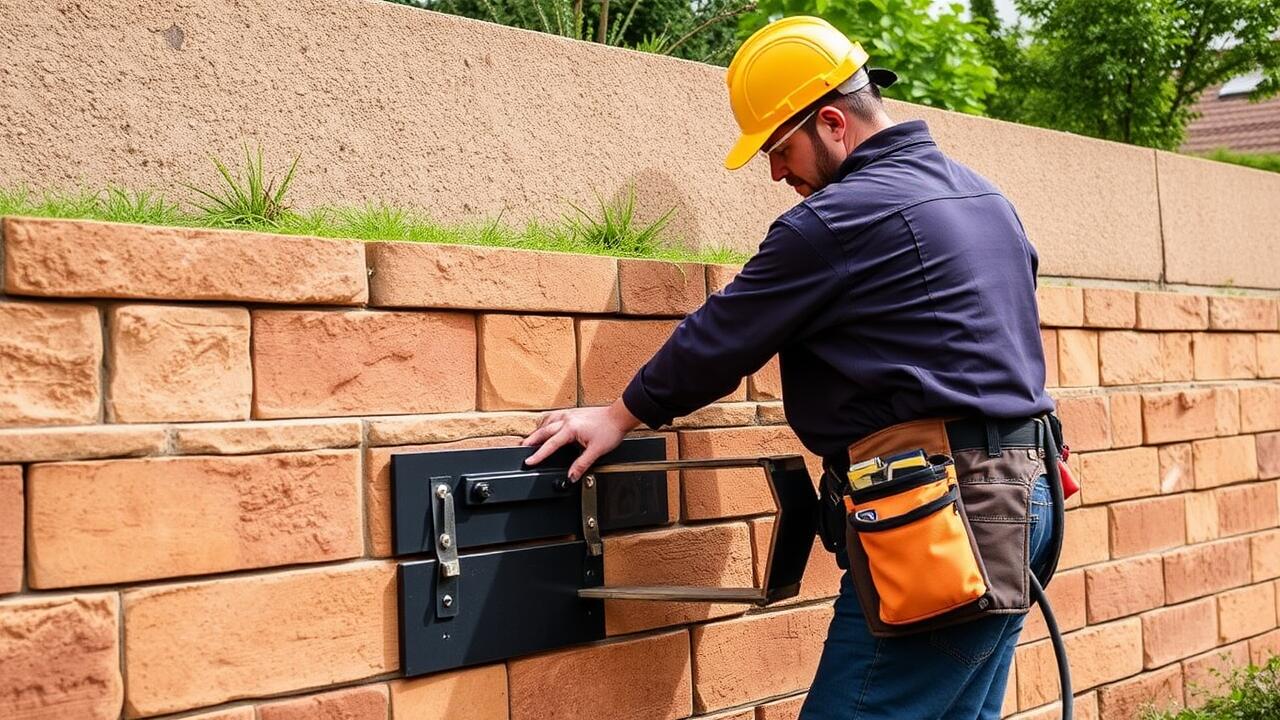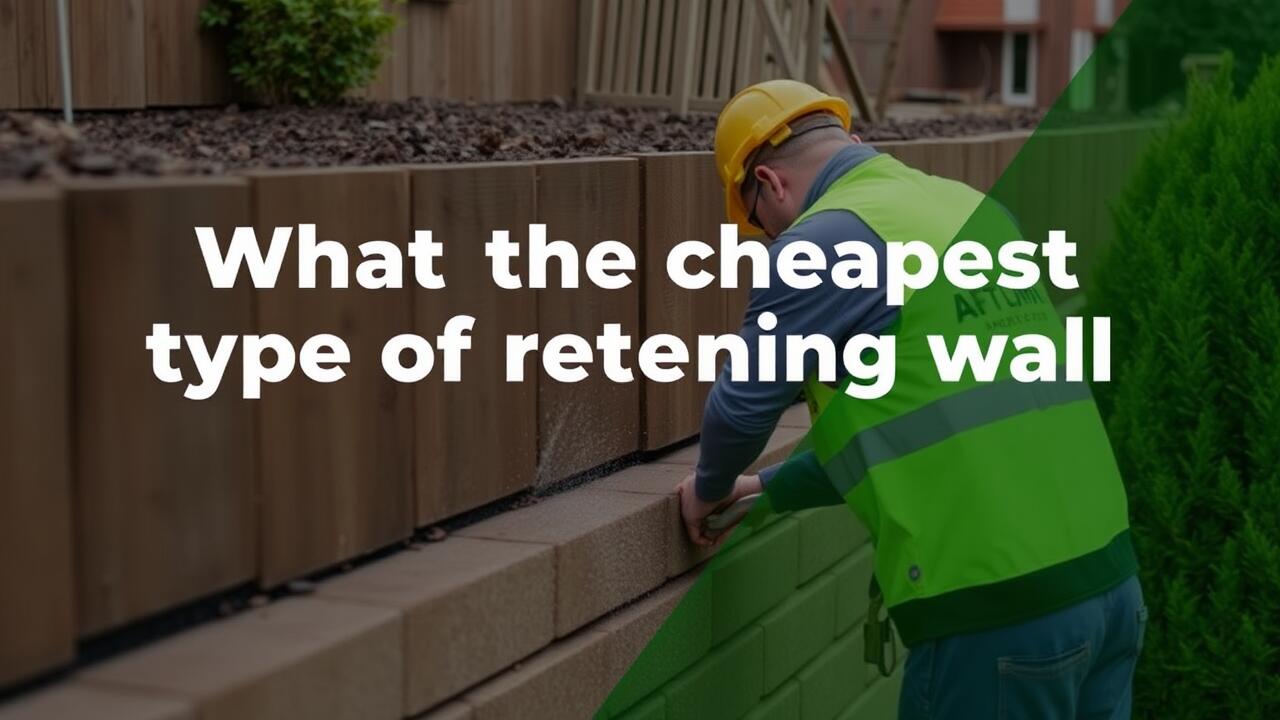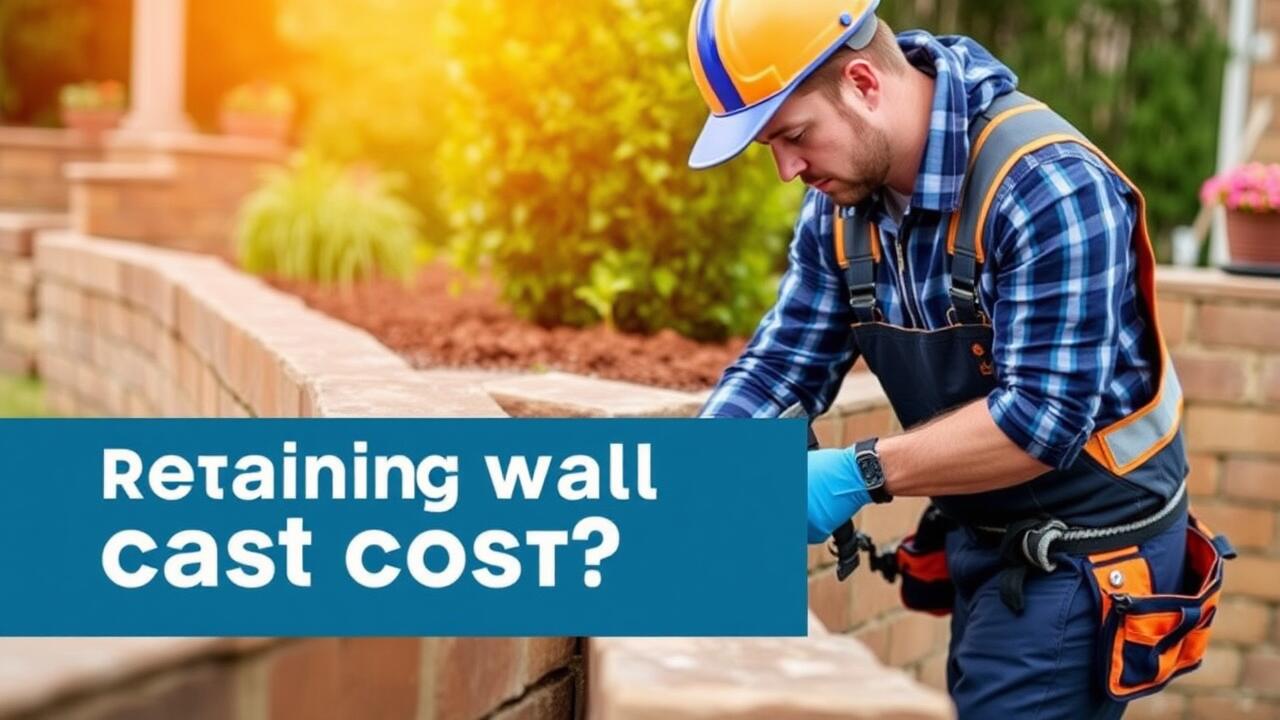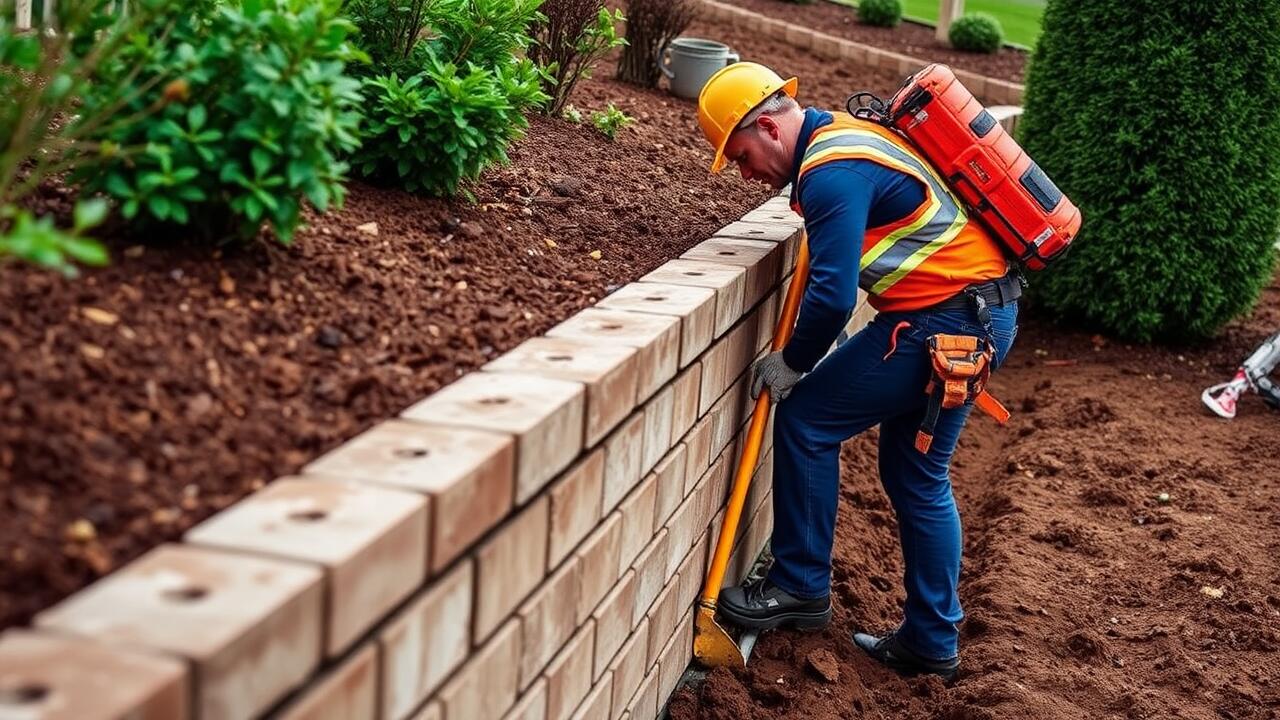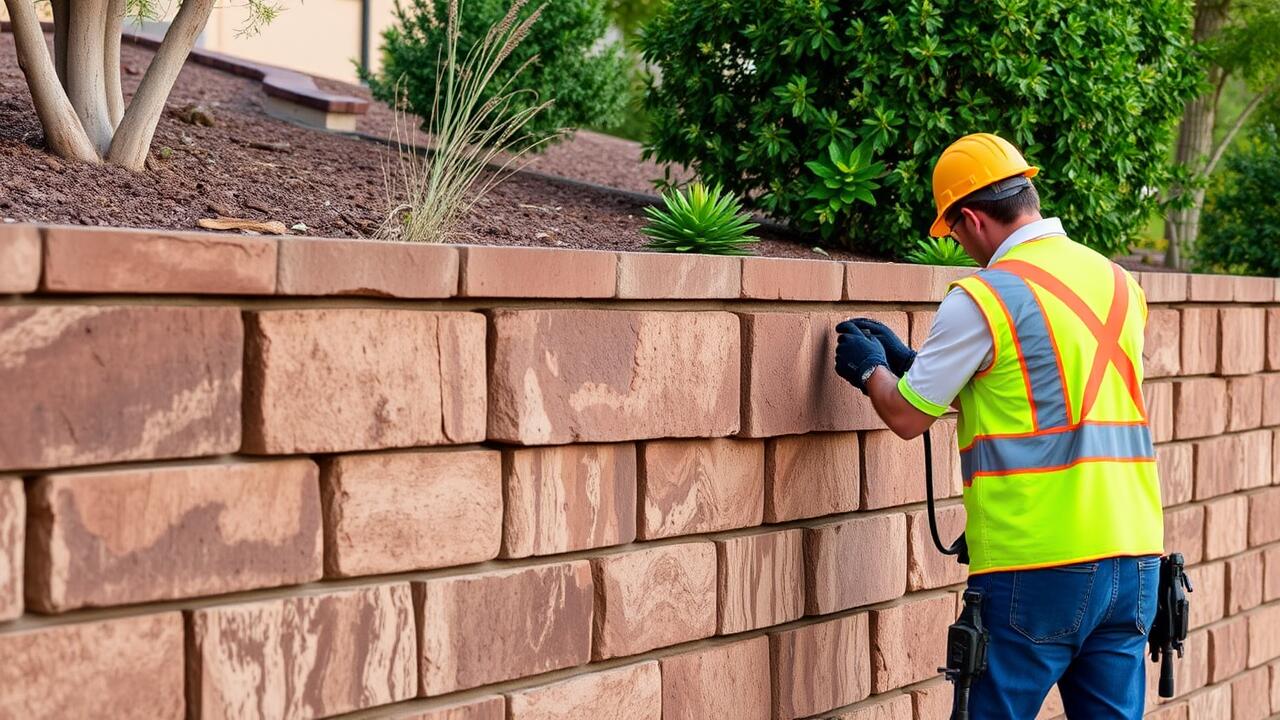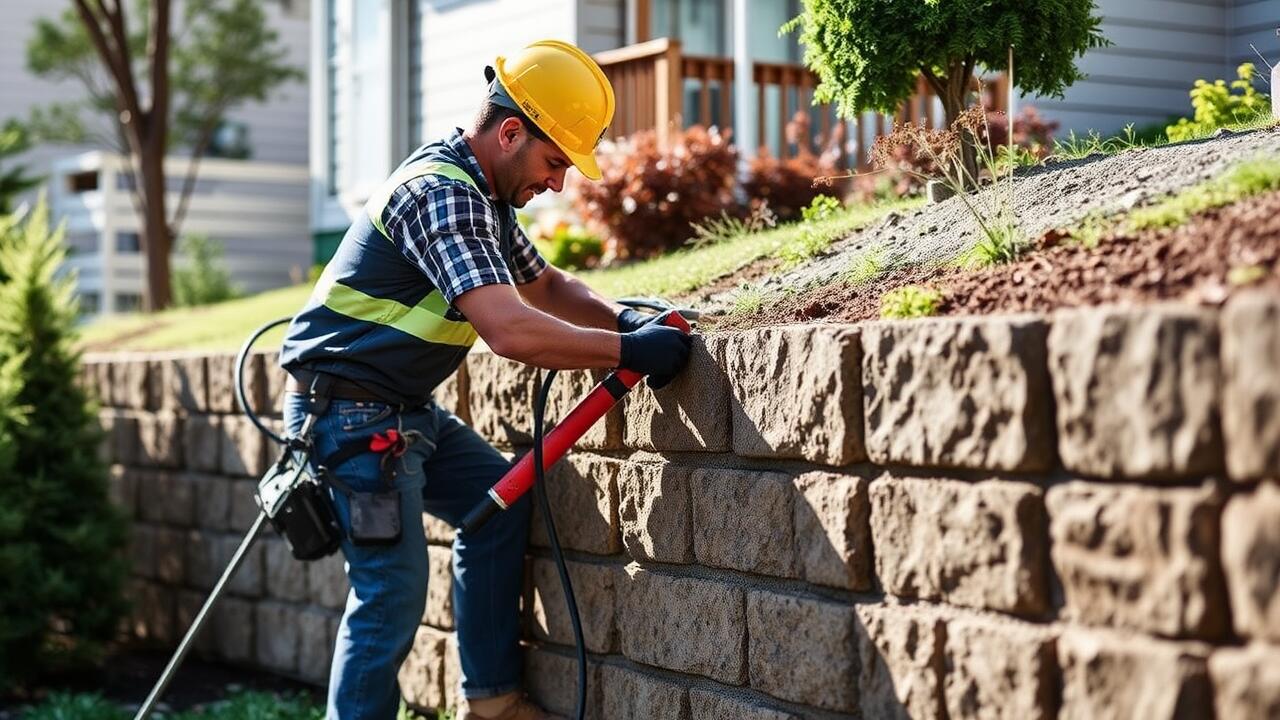
Estimated Costs for Different Materials
When considering the estimated costs for building a 4-foot retaining wall, material choice plays a crucial role in overall expenses. Common materials include concrete blocks, natural stone, wood, and vinyl. For instance, concrete blocks typically range from $15 to $30 per square foot, while natural stone can push costs upwards of $50 per square foot. In areas like Laveen, Phoenix, the selection of materials often depends on local availability and climate considerations.
Wood is another popular choice, especially for those seeking a more natural look, with prices varying from $10 to $25 per square foot. Vinyl, known for its durability and low maintenance, may cost between $20 and $40 per square foot. These price ranges highlight the importance of selecting the right material for Retaining Wall Installation Laveen, Phoenix. By comparing the characteristics and costs associated with each option, homeowners can make informed decisions that align with their budget and aesthetic preferences.
Pricing Breakdown by Material Type
When considering the costs associated with building a 4-foot retaining wall, the choice of materials plays a crucial role. Concrete blocks typically range from $10 to $15 per square foot, while natural stone can range anywhere from $20 to $40 per square foot, significantly increasing the overall budget. Pressure-treated timber, often considered a more budget-friendly option, usually costs between $5 and $10 per square foot. Each material has its own benefits and drawbacks that can influence not only the initial investment but also long-term maintenance expenses.
In Laveen, Phoenix, local suppliers offer various options that might affect availability and pricing. For instance, landscape timbers or bricks might be more commonly stocked than natural stone or engineered blocks. Additionally, when budgeting for retaining wall installation in Laveen, Phoenix, it's essential to account for potential delivery fees and any required permits that might come into play, which can also fluctuate based on the selected materials. Understanding these variables can help homeowners plan their projects more effectively while staying within their financial limits.
Additional Features and Customization
When planning a retaining wall, customization can significantly enhance both functionality and aesthetics. Homeowners may choose to incorporate features such as decorative caps, lighting, or built-in seating, which can elevate the overall look of the structure. Choosing materials that match or complement the surrounding landscape further adds to the appeal. Customization not only caters to personal taste but also can potentially increase property value, making it an important consideration in the planning phase.
The complexity of design elements can also influence the total cost of the project. For instance, a simple, straight wall will typically be more budget-friendly than a curved or tiered design. Those opting for advanced features should budget for additional labor and material expenses. In locations such as Laveen, Phoenix, it is advisable to consult with experienced professionals in retaining wall installation to ensure that the desired features are feasible and aligned with local regulations.
How Design Elements Impact Overall Costs
Design elements play a significant role in the overall costs associated with building a retaining wall. Factors such as the wall's shape, height, and the complexity of the design can all influence the final price. A straightforward, straight wall will often be less expensive than one that features curves or decorative elements. Incorporating additional features like integrated lighting or planter boxes can further increase expenses, so careful planning is essential to balance functionality with aesthetics.
Landscaping considerations also affect costs. The surrounding terrain may need grading or additional support structures, which can raise the overall expenditure. Local regulations and permitting might require specific design adaptations that could lead to additional expenses as well. Homeowners in areas like Laveen, Phoenix, should consider these factors when planning for retaining wall installation. Custom features may enhance the wall's visual appeal, but they also contribute to the overall investment.
Equipment Rental Costs
Renting equipment for retaining wall construction can add significant expenses to your overall project budget. Commonly rented items include excavators, bobcats, and compactors, which are essential for site preparation and ensuring a solid foundation. Rates can vary based on local rental companies and the duration of the rental period. For those considering projects in areas like Retaining Wall Installation Laveen, Phoenix, it’s important to compare prices to find the best deals.
Additionally, transportation costs for the equipment often factor into the rental price and should be considered in the budget. If you opt to hire a contractor, they may include rental fees in their service costs. Being aware of the potential expenses associated with equipment rental will help in planning a more accurate budget for your retaining wall project.
Essential Tools for Retaining Wall Construction
Building a retaining wall requires a variety of essential tools to ensure proper construction and durability. Basic tools include a shovel for digging the foundation, a level to confirm evenness, and a tamper for compacting soil. For more complex projects, a masonry saw may be necessary for cutting bricks or stones, while a wheelbarrow helps in transporting heavy materials. These tools not only streamline the process but also contribute to the overall quality of the installation.
Moreover, specialized tools can facilitate more intricate work for homeowners and contractors alike. A laser level assists in achieving precise measurements over long distances. A landscape rake may be useful for leveling soil or gravel, creating a stable base for the wall. In Laveen, Phoenix, investing in the right equipment is critical for successful retaining wall installation to withstand weather conditions and erosion over time.
FAQS
What is the average cost of building a 4-foot retaining wall?
The average cost can range from $1,500 to $5,000, depending on the materials used, design elements, and labor costs in your area.
What materials are commonly used for retaining walls?
Common materials include concrete blocks, natural stone, wood, and modular blocks. Each material has its own cost implications and aesthetic qualities.
Do additional features like drainage systems increase the cost of a retaining wall?
Yes, incorporating features such as drainage systems, lighting, or decorative elements can significantly increase the overall cost of the project.
How much might I spend on equipment rental for building a retaining wall?
Equipment rental costs can vary, but you might expect to spend between $100 to $500, depending on the tools you need, such as excavators, compactors, or saws.
Is it possible to build a retaining wall myself to save on costs?
Yes, building a retaining wall yourself can save on labor costs. However, it's important to have the necessary skills, tools, and knowledge of local regulations to ensure the wall is safe and effective.
